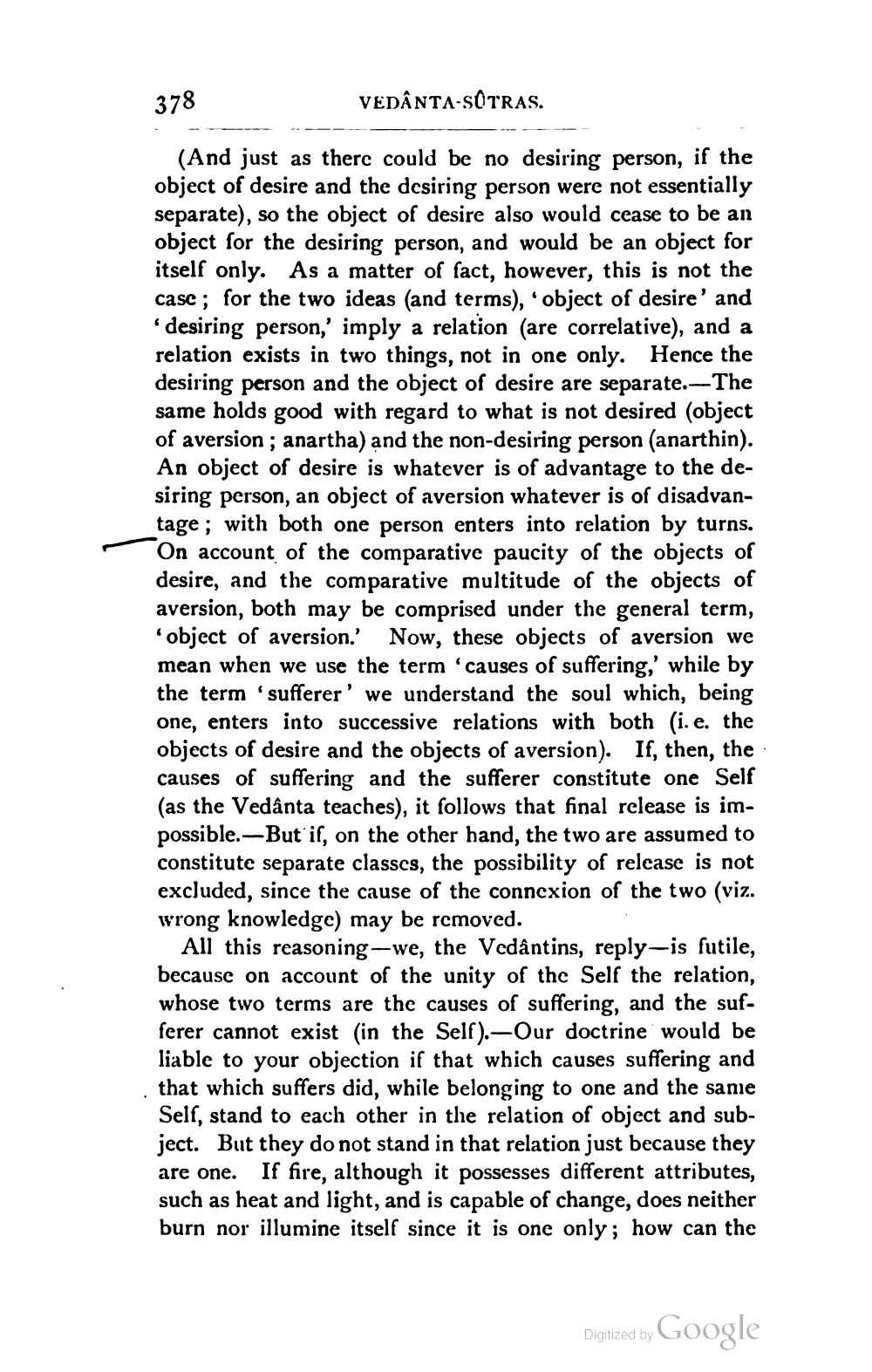________________
378
VEDÂNTA-SOTRAS.
(And just as there could be no desiring person, if the object of desire and the desiring person were not essentially separate), so the object of desire also would cease to be an object for the desiring person, and would be an object for itself only. As a matter of fact, however, this is not the casc ; for the two ideas and terms), object of desire' and 'desiring person,' imply a relation (are correlative), and a relation exists in two things, not in one only. Hence the desiring person and the object of desire are separate. The same holds good with regard to what is not desired (object of aversion; anartha) and the non-desiring person (anarthin). An object of desire is whatever is of advantage to the desiring person, an object of aversion whatever is of disadvantage; with both one person enters into relation by turns. On account of the comparative paucity of the objects of desire, and the comparative multitude of the objects of aversion, both may be comprised under the general term, 'object of aversion. Now, these objects of aversion we mean when we use the term 'causes of suffering,' while by the term 'sufferer' we understand the soul which, being one, enters into successive relations with both (i.e. the objects of desire and the objects of aversion). If, then, the causes of suffering and the sufferer constitute one Self (as the Vedânta teaches), it follows that final release is impossible.—But if, on the other hand, the two are assumed to constitute separate classes, the possibility of release is not excluded, since the cause of the connexion of the two (viz. wrong knowledge) may be removed.
All this reasoning -we, the Vedântins, reply-is futile, because on account of the unity of the Self the relation, whose two terms are the causes of suffering, and the sufferer cannot exist in the Self).-Our doctrine would be liable to your objection if that which causes suffering and that which suffers did, while belonging to one and the sanie Self, stand to each other in the relation of object and subject. But they do not stand in that relation just because they are one. If fire, although it possesses different attributes, such as heat and light, and is capable of change, does neither burn nor illumine itself since it is one only; how can the
Digitized by Google




